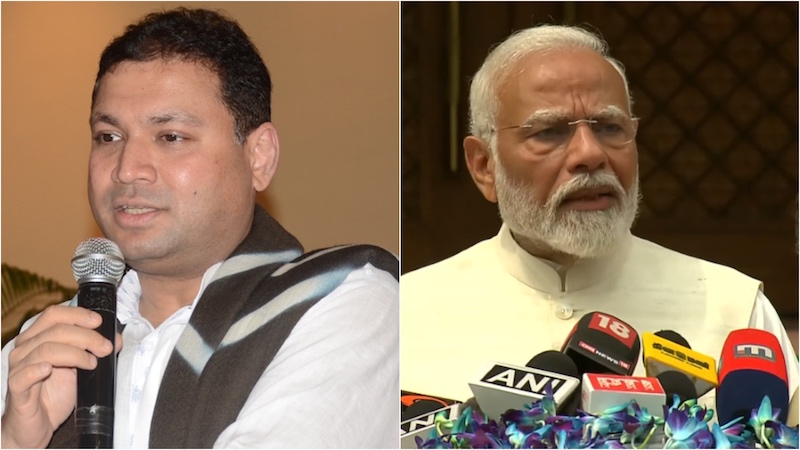
I have recently made a passionate appeal to honourable prime minister Narendra Modi ji seeking his kind attention and intervention to review norms for the Corporate Social Responsibility (CSR) funds.
As we understand, CSR funds provide crucial support to bolster the cultural and literary landscape of India. My humble intention is to help secure essential funding for India’s vibrant arts and cultural sectors, which remain underserved notwithstanding their pivotal role in building national identity and enhancing India’s soft power. The change in CSR policy (in September 2022) has greatly impacted the attention received by the arts sectors, prompting me to make an impassioned plea to the prime minister who has a sensitive approach towards these issues.
The New Rules have made substantial changes to the definition clause of CSR Policy Rules in September 2022.
The latest amendments in CSR policy have introduced ‘Administrative Overheads’ as a new term defined under Section 2(b) to refer to expenses incurred by the company for ‘general management and administration’ in relation to its CSR functions. These expenses are now capped at 5% of the company’s total CSR expenditure. Many companies have concerns regarding the five percent cap on administrative overheads under the new Rules as it is impractical to abide by such provisions. The other features of the new CSR policy also stipulate that any activity undertaken by the company outside India shall not be considered as CSR except for training of Indian sports personnel representing any State or Union territory at national level or India at international level.
Currently, companies can donate to non-profit organisations outside of social stock exchanges (SSEs) under their CSR activities. However, they cannot fund non-profit organisations through SSEs to fulfil their CSR mandate. There is also an issue of amendment in Schedule VII of the Companies Act, 2013. Schedule VII of the Companies Act, as we understand, lists the activities that companies undertake for CSR.
I am happy to note that my idea has resonated with multiple stakeholders across the spectrum, from literary scholars to cultural enthusiasts, who view CSR as a potent tool for promoting arts and culture amidst an evolving socio-economic landscape. Actress Nandita Das and Grammy-winning musician Ricky Kej were quick to endorse my plea. I am tempted to quote Nandita for her advocacy when she wrote: “Thank you Sundeep Bhutoria for taking the initiative to speak for art and craft communities that really struggle for sustenance. Preservation and conservation of art, craft and handlooms that are fast vanishing is super important…” Similarly, Kej emphasised the importance of integrating art, culture and literature into CSR frameworks, citing their profound impact on societal well-being and global cultural diplomacy: “CSR initiatives need to include art, culture and literature…this is our soft power and our might!” Such sentiments were also echoed by Indian classical veena expert Vishwa Mohan Bhatt, who said: “It’s very important to think for preservation…of classical and folk arts. Let us all support this movement and request our Honourable PM of India to consider.” Author Kiran Manral and columnist Koral Dasgupta also supported me for investing in and supporting India’s creative forces with an emphasis on encouraging artistic and cultural growth.
In my letter to the prime minister, I have specifically mentioned about the Prabha Khaitan Foundation which works across the country for the sustenance and spread of Indian culture and heritage through performance and discussion. We also provide books to educational institutions in rural and semi-urban areas. Most of our events are held in Tier B and C cities, where availability of books is restricted and many readers can’t afford to buy new books,” I wrote gently pointing towards the necessity of CSR initiatives to provide platforms and opportunities for artists, musicians, writers and artisans, especially in places where cultural activities often face financial constraints.
It goes without saying that absence of corporate funding would make a major impact on preserving and promoting diverse artistic expressions across the nation.
The cultural heritage of India is a cornerstone of our identity and it is incumbent upon us to ensure its preservation and accessibility for future generations. In fact, my appeal aligns with global trends recognising the economic significance of creative industries. Globally, the creative sector not only contributes significantly to GDP and employment — factors that India, with its vast cultural heritage, can harness for socio-economic development — but also facilitates international trade and cross-cultural expansion. In this context, I modestly drew attention to buzzwords like “creative economy”, which encapsulate the vast tangible and intangible value now held by the creative industry.
In my letter, I have pointed out that “the creative sector has a share of 5.5% of global output, in terms of gross value added” and when it comes to “employment generation, the contribution of creative industries to national employment stands at a global average of 5.32%.” Yet, according to me, the artistic and cultural core of our country is struggling to breathe as many of the torchbearers of India’s cultural legacy are unable to even make ends meet.
If we wish to regain centrestage in the sphere of cultural heritage, we must first create a sustainable environment for the thriving of artistic output. The solution to the plague-like withering of cultural funding is the influx of corporate funds, which I regard as “the lifeblood for India’s artistic and cultural renaissance”. By leveraging CSR funds to empower artists and promote cultural diversity, India can reclaim its position as a global cultural hub while fostering economic growth through creative industries.
The thrust of my letter is not just about the corporates but also the government, whose policymaking and execution have been instrumental in pushing CSR initiatives over the past decade, to usher in the promotion of arts and culture. As someone familiar with various dimensions, I can pinpoint the need for governmental policies that incentivise corporate engagement in cultural and artistic endeavours. By advocating for the inclusion of arts within CSR mandates, we can bridge the existing gaps in cultural funding, ensuring sustainable growth and visibility for India’s artistic communities, both domestically and internationally.
Taking the first steps towards an Indian cultural renaissance under prime minister Modi’s dynamic leadership would surely be an invaluable legacy for your third term in office,” I wrote in my concluding paragraphs highlighting the impact Prime minister can have by virtue of his government looking more deeply into CSR funding for arts and culture.
To conclude, let me recall Mahatma Gandhi’s words, “A nation’s culture resides in the hearts and souls of its people”. In my view, it is the arts — “ranging from the visual arts and crafts to literature, performing arts to design and architecture, and much more” — that can touch every heart of our country and connect the human spirit globally. As the nation looks forward to a future where art, culture, and literature thrive, I hope and pray that the outcome of my letter may lead to a greater exuberance of India’s creative industry.















